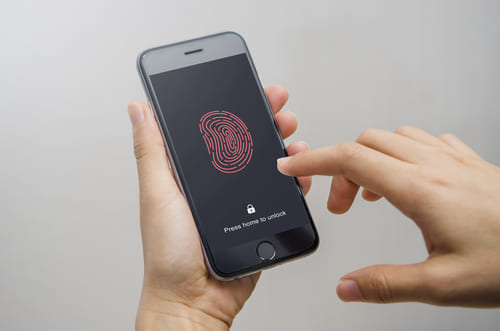 During encounters with police officers, people will often be uncertain about their rights and the steps they can take to avoid incrimination. Unfortunately, many people are pressured or compelled into allowing searches or seizures of potential evidence, which can affect their ability to defend themselves against criminal charges.
During encounters with police officers, people will often be uncertain about their rights and the steps they can take to avoid incrimination. Unfortunately, many people are pressured or compelled into allowing searches or seizures of potential evidence, which can affect their ability to defend themselves against criminal charges.
One issue that has become more prominent in recent years is whether police may be allowed to access suspects’ cell phones. Because these devices contain a great deal of information that could be pertinent to a criminal case, police will often take steps to force suspects to unlock their phones. While this would seem to be a violation of people’s rights, a recent court ruling may allow these types of searches in some situations. For those who are concerned about potential violations of their rights, an experienced attorney can provide guidance on how to address these issues while defending against a criminal conviction.
In a recent case, United States v. Jeremy Travis Payne, the 9th Circuit Court of Appeals addressed whether police can require a person to unlock their phone in order to allow them to access information that could be used as evidence. In this case, the defendant was a man in California who was on parole. When he was pulled over by the California Highway Patrol and charged with possession of fentanyl and cocaine with intent to distribute, the officers allegedly forced him to unlock his phone using his thumbprint.
The question in this case was whether forcing the defendant to unlock his phone was a violation of his rights. Since the defendant was on parole, he was under an agreement requiring him to allow searches of his phone by law enforcement. These searches could be conducted even without suspicion that he had engaged in criminal activity. However, while the agreement required him to provide a passcode or key to unlock his phone, it did not address biometric information like fingerprints.
Normally, the Fourth Amendment protects people against unreasonable searches and seizures by law enforcement. Since people have a reasonable expectation of privacy in regard to the personal data stored on the devices they use, police typically cannot force them to unlock these devices or access this information without a search warrant. However, the defendant in this case did not have any reasonable expectation of privacy due to his parole agreement. Instead, he argued that forcing him to use his thumbprint to unlock his phone was a violation of his Fifth Amendment rights against self-incrimination.
The appeals court ruled that the use of the thumbprint did not violate the Fifth Amendment because it required no “cognitive exertion” by the defendant. He was not compelled to acknowledge that any incriminating evidence existed, and he was simply required to provide access based on the terms of his parole agreement. The court likened the use of his thumbprint to fingerprinting or blood draws performed following an arrest and noted that his thumbprint could have been used even if he was unconscious. However, the court also noted that this ruling would not apply in all cases involving the use of biometric information to access electronic devices.
While the ruling in United States v. Jeremy Travis Payne may not necessarily apply in cases where police attempt to access a suspect’s cell phone or other electronic devices, it is still important for criminal defendants to take steps to protect their rights. At Woolf & Ross Law Firm, LLC, our Hartford criminal defense attorney can help defendants stand up to unreasonable searches or other violations of their rights by law enforcement. We will work to prevent unfair and unjust treatment while defending against convictions. To set up a free consultation and learn how we can address these and other legal issues during a criminal case, contact us at 860-290-8690.
 50 Founders Plaza
50 Founders Plaza

